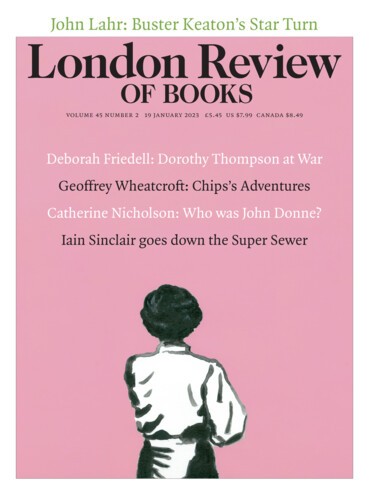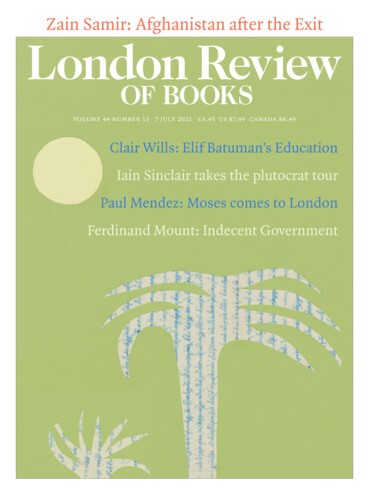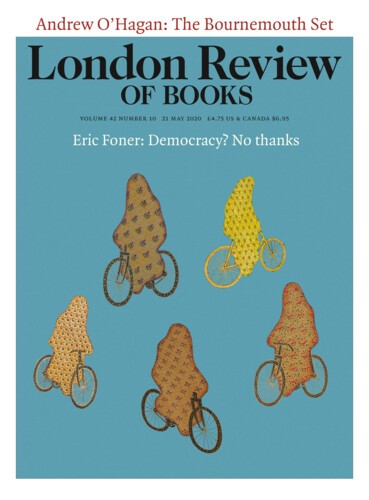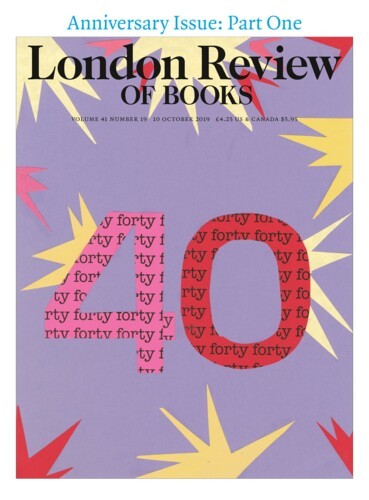I think it was on the day of the Westminster coronation, a sorry stroll through a resolutely unfestive city, that I realised there was no more weather. That reflex topic of British conversation had finally abdicated. Weather had withdrawn the accepted metaphors on which civic and poetic life depend. The ancient bond between king, subjects and sky was dissolved. If our former intimacy with barely perceptible shifts in atmospheric pressure was lost, we were done. Also lost. Divorced from our most ancient sense of self, we had no further business in this alienated metropolitan sprawl. And there could be no functioning ecology under such a dull and unyielding mantle. A clammy and persistent duvet of grey negatives separated us from the revelation of migrating cloud streets.
Iain Sinclair
Iain Sinclair’s Mental Travailers: Or, the Battle of the Books. Blake & Latham in Subtle Congress on Peckham Rye, a poem, is out now.
Negative Equivalent: In the Super Sewer
Iain Sinclair, 19 January 2023
There are three opposed elements: the towers, the street and the shaft. The gaping maw of the Super Sewer goes down as far as the surrounding towers climb, but it is covert, safe behind barrier walls, protected by yawning security operatives in hard hats, charged with stalling appointments. This buried London, a labyrinth of antiquated tube tunnels, abandoned stations, Crossrail advances, medieval burial pits, utilities, intersecting sewers, lost rivers, bomb shelters, escape hatches for royalty, is the most disturbing of the three layers. We feel the cuts of earth surgery, even when we have no knowledge of where they are happening. We shudder in ignorance as monstrous machines chew through clay. We feel a physical shift in the balance of things. But we have no reliable chart. The story is told before it happens. And it has to be experienced, in order to confirm its CGI fictions.
Diary: The Plutocrat Tour
Iain Sinclair, 7 July 2022
The London architecture you are permitted to notice, Caroline Knowles reckons, is just money on display. In Serious Money: Walking Plutocratic London, she describes the overweening spike of Renzo Piano’s Shard as ‘a glass and concrete arrangement of the Qatar sovereign wealth fund’.* The loudest crimes are hidden in plain sight. Look around, you can’t miss them. The...
Diary: In Guy Vaes’s Footsteps
Iain Sinclair, 21 May 2020
For a retired brothel, Hotel Esperance provided an excellent breakfast. My Brussels sponsors had arranged for me to occupy the favoured chamber with its freestanding claw-footed bath, wispily draped Art Deco dryads, fishbowl lights and heavy velvet curtains. The set was screaming for a David Lynch remake of The Masque of the Red Death. Room Three, Hotel Esperance, Finistère: a beacon...
Diary: The Peruvian Corporation of London
Iain Sinclair, 10 October 2019
Out of the shuddering car and into the dance. The holy medallion is still swinging like a hanged Disneyland midget in a gale. The eyes of the skull knob on the gearstick pulse dangerously. The migraine radio thumps to assert a fading connection with the world we have left behind. But the headlong momentum of the broken road, endured in a foetal crouch for so many miles, is swiftly absorbed...
Podcasts & Videos
The Last London
Iain Sinclair
Iain Sinclair delivers his lecture on ‘The Last London’ at the British Museum.
Walking the Last London
Iain Sinclair
Iain Sinclair gives a tour around the area near his home in Hackney, London.
The LRB at 40: On London
Rosemary Hill and Iain Sinclair
Rosemary Hill and Iain Sinclair talk to Sam Kinchin-Smith about London, as part our 40th anniversary event series.
Iain Sinclair and Stewart Lee: The Last London
Iain Sinclair
Iain Sinclair discusses his latest book, The Last London, with Stewart Lee at St George’s church, Bloomsbury.
London: City of Disappearances
Iain Sinclair, Will Self and Jonathan Meades
Iain Sinclair, Will Self and Jonathan Meades discuss London’s relentless processes of erasure and renewal.
Pieces about Iain Sinclair in the LRB
Pods and Peds: Iain Sinclair
Caroline Maclean, 18 November 2004
It is best to read Iain Sinclair’s work out of the corner of your eye. The action takes place on the peripheries; it disintegrates if you concentrate too hard on the middle. Dining on...
Elective Outsiders
Jeremy Harding, 3 July 1997
That Iain Sinclair, poet, essayist, impresario and weaver of arcane fictions, is one of the more generous spirits around is obvious from this brave, demanding and often flummoxing anthology....
The Opposite of a Dog
Jenny Turner, 6 October 1994
‘I’m so glad to hear that your son is having some success at last, Mrs Sinclair,’ said the Queen Mother. ‘We all follow his career with the greatest interest.’
Adventures at the End of Time
Angela Carter, 7 March 1991
All writers of fiction are doing something strange with time – are working in time. Not their own time, but the time of the reader.
Rodinsky’s Place
Patrick Wright, 29 October 1987
In 1975 Colin Ward described Spitalfields as a classic inner-city ‘zone of transition’. Bordering on the City of London, the place had traditionally been a densely-populated...
Read anywhere with the London Review of Books app, available now from the App Store for Apple devices, Google Play for Android devices and Amazon for your Kindle Fire.
Sign up to our newsletter
For highlights from the latest issue, our archive and the blog, as well as news, events and exclusive promotions.





